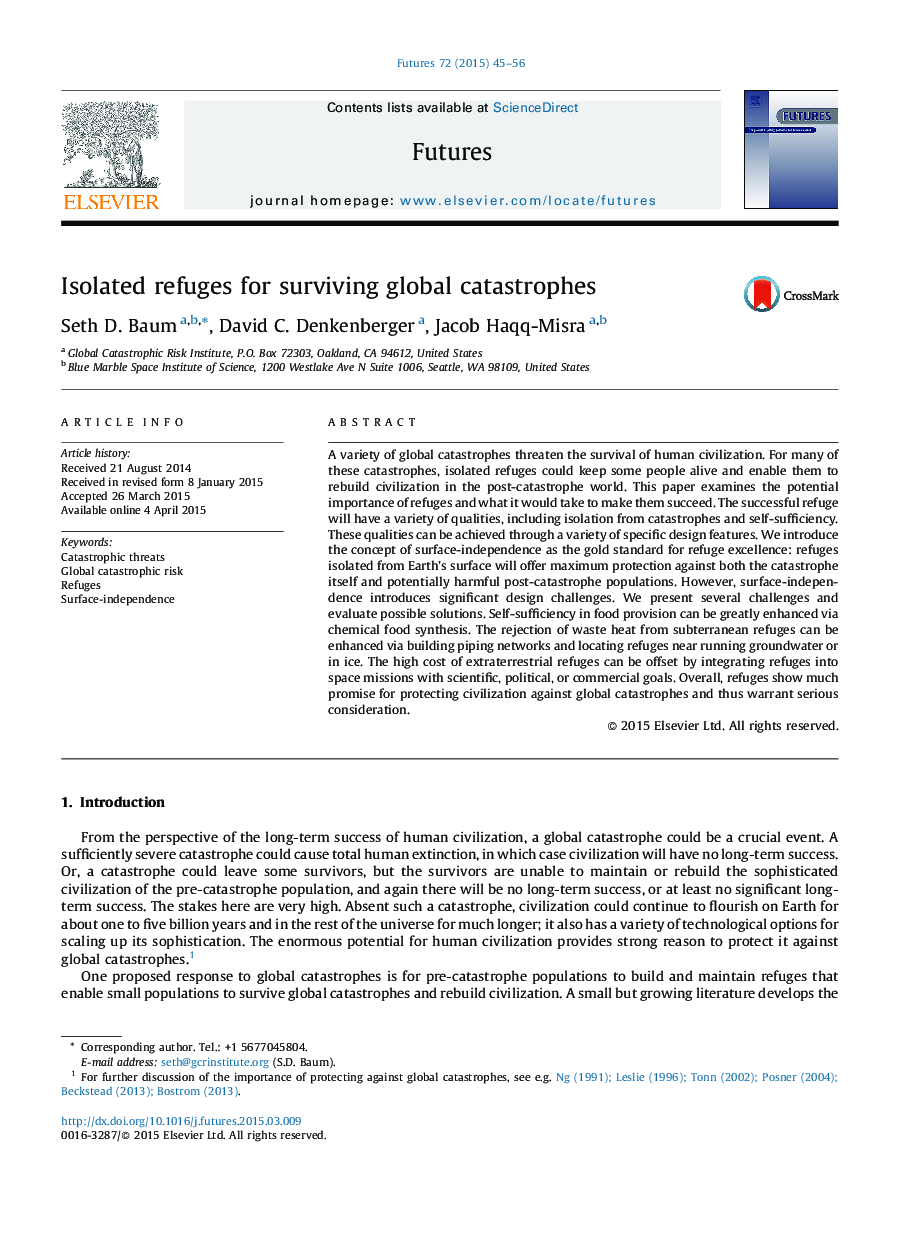| Article ID | Journal | Published Year | Pages | File Type |
|---|---|---|---|---|
| 1015447 | Futures | 2015 | 12 Pages |
•Isolated refuges can help people survive a variety of global catastrophes.•This paper discusses the importance of refuges and what makes them succeed.•The best refuges will be independent of Earth's surface.•Surface-independent refuges can be below ground, under water, or in space.•Surface-independence poses novel design challenges.
A variety of global catastrophes threaten the survival of human civilization. For many of these catastrophes, isolated refuges could keep some people alive and enable them to rebuild civilization in the post-catastrophe world. This paper examines the potential importance of refuges and what it would take to make them succeed. The successful refuge will have a variety of qualities, including isolation from catastrophes and self-sufficiency. These qualities can be achieved through a variety of specific design features. We introduce the concept of surface-independence as the gold standard for refuge excellence: refuges isolated from Earth's surface will offer maximum protection against both the catastrophe itself and potentially harmful post-catastrophe populations. However, surface-independence introduces significant design challenges. We present several challenges and evaluate possible solutions. Self-sufficiency in food provision can be greatly enhanced via chemical food synthesis. The rejection of waste heat from subterranean refuges can be enhanced via building piping networks and locating refuges near running groundwater or in ice. The high cost of extraterrestrial refuges can be offset by integrating refuges into space missions with scientific, political, or commercial goals. Overall, refuges show much promise for protecting civilization against global catastrophes and thus warrant serious consideration.
